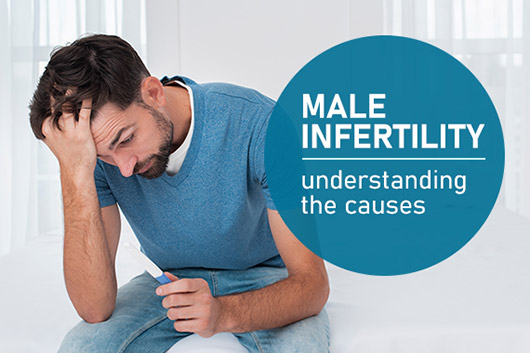Male Infertility Treatment in Delhi, Male Infertility Treatment Clinic in Delhi, Male Infertility Treatment Doctor in Delhi, Male Infertility Treatment Cost in Delhi. Nearly 8% Male is infertile in India, which means they have not been able to produce a child through natural unprotected sexual intercourse within their lifetime. Male infertility can be caused by low sperm production, abnormal sperm function or blockages that prevent the delivery of sperm. Illnesses, injuries, chronic health problems, lifestyle choices and other factors may contribute to male infertility. The inability to conceive a child can be stressful and frustrating, but a number of treatments are available for male infertility.
Symptoms of Male Infertility
The main sign of male infertility is the inability to conceive a child by her female partner after a long trial. There may be no other obvious signs or symptoms. In some cases, however, an underlying problem such as an inherited disorder, hormonal imbalance, dilated veins around the testicle or a condition that blocks the passage of sperm causes signs and symptoms. Signs and symptoms you may notice include:
Problems with sexual function:
- Difficulty with ejaculation or small volumes of fluid ejaculated, reduced sexual desire, or difficulty maintaining an erection (erectile dysfunction)
- Pain, swelling or a lump in the testicle area
- Recurrent respiratory infections
- Inability to smell
- Abnormal breast growth (gynecomastia)
- Decreased facial or body hair or other signs of a chromosomal or hormonal abnormality
- A lower than normal sperm count (fewer than 15 million sperm per milliliter of semen or a total sperm count of less than 39 million per ejaculate)
What are the General Causes of Male Infertility?
Male fertility is a complex process. To get your partner pregnant, the following must occur:
- You must produce healthy sperm. Initially, this involves the growth and formation of the male reproductive organs during puberty. At least one of your testicles must be functioning correctly, and your body must produce testosterone and other hormones to trigger and maintain sperm production.
- Sperm have to be carried into the semen. Once sperm are produced in the testicles, delicate tubes transport them until they mix with semen and are ejaculated out of the penis.
- There needs to be enough sperm in the semen. If the number of sperm in your semen (sperm count) is low, it decreases the odds that one of your sperm will fertilize your female partner egg. A low sperm count is fewer than 15 million sperm per milliliter of semen or fewer than 39 million per ejaculate.
- Sperm must be functional and able to move. If the movement (motility) or function of your sperm is abnormal, the sperm may not be able to reach or penetrate your female partner egg.



